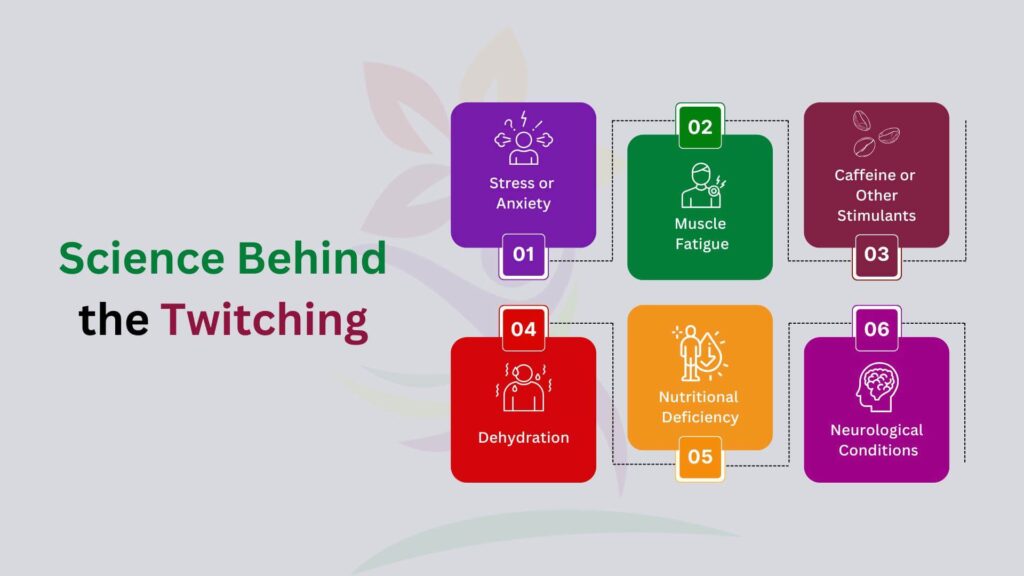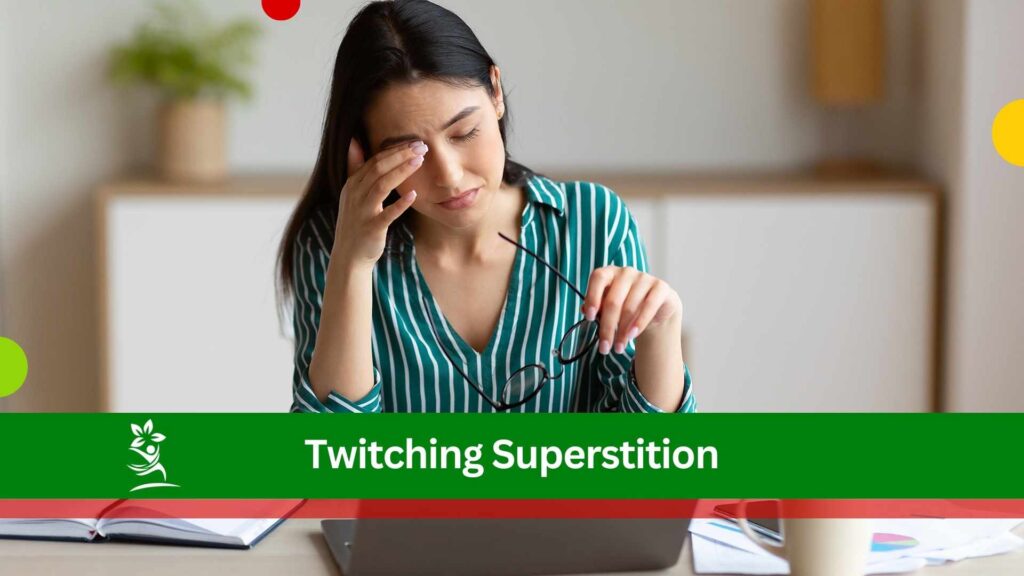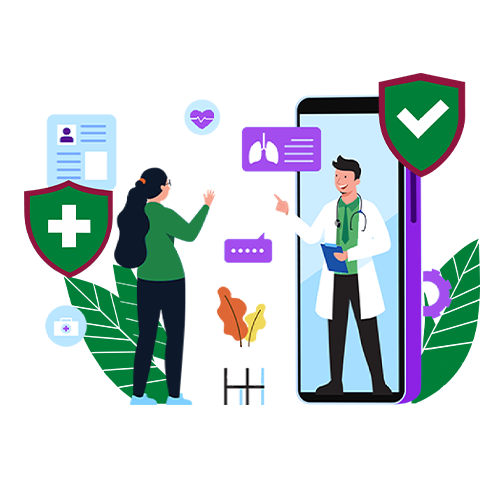Is your left eye twitching? Then something bad is going to happen to you.” You might have heard or said this or similar statements several times in your life. There are many superstitious beliefs associated with the twitching of different parts such as eyes, lips, nose, etc. The twitching of each body part is believed to have a specific sign or omen. But what does this twitching actually mean? Let’s explore twitching superstition.
Quick Links
ToggleWhat is Twitching Superstition?
Twitching is the sudden involuntary movement of muscles that happens without warning. This condition is both surprising and perplexing. For centuries, these twitching movements have been associated with various superstitious beliefs. Particularly, these are considered signs or omens of something good or bad going to happen.
The Origins of Twitching Superstition
Twitching has been a part of human experiences for as long as we can remember. Various cultures developed their interpretation of these twitches. From good fortune to impending doom, the meanings vary widely in different cultures and the specific body part in which twitches occur.
Common Twitching Superstitions
1- Eye Twitching
Both eye twitches have different meanings attached to them. In many traditions, twitching in the left eye is considered a bad omen, a misfortune, or a sign of an upcoming unpleasant event. In some cultures, it is also believed that someone is backbiting you.
While a twitch in the right eye is believed to be a positive sign. It is considered to bring good luck or an upcoming pleasant surprise. In some cultures, it means someone is speaking well of you.
2- Nose Twitching
Nose twitch is often linked with the belief that someone is thinking about you or that a surprise visitor is on their way. Some people also believe it indicates a forthcoming dispute or argument.
3- Lip Twitching
There are different meanings associated with upper and lower lip twitches. Twitching in the upper lip is meant to be a sign that good news is coming, particularly related to love or relationships. It is believed that someone is going to express their affection towards you soon.
While the lower lip twitching has the exact opposite meaning. It is believed that bad news is on its way, or you might be about to say something that you’ll regret later.
4- Thumb Twitching
Left and right thumb twitches have different meanings associated with them. A twitch in the left thumb is believed to be a sign of an impending loss, whether financial or emotional.
On the contrary, a twitch in the right thumb is associated with a boost in financial luck or career success. It is an indication that money or promotions is on its way.
5- Foot Twitching
Twitching on the right foot is believed to be positive and you may start a successful travel journey or receive some good news related to travel.
The twitch in the left foot is often considered a warning of upcoming obstacles or difficulties in your path or journey.
Science Behind the Twitching
While the superstitious beliefs associated with twitching may seem fascinating, it is crucial to understand the scientific reasons behind twitching. Involuntary muscle twitches, also known as Fasciculations, can occur for a variety of reasons.

1- Stress or Anxiety
One of the most common reasons for twitching is Stress & Anxiety. When you are stressed, your body releases adrenaline, which is responsible for involuntary muscle contraction and relaxation, causing twitches.
Check Also: How To Sleep Well?
2- Muscle Fatigue
Fatigue, particularly muscle fatigue can lead to twitching. When your muscles are tired or overworked, they may twitch to indicate they need rest. This is common after intense physical activity or working for prolonged periods without sleep.
3- Caffeine or Other Stimulants
Excessive consumption of caffeine or other stimulants can also trigger muscle twitches. Caffeine stimulates the nervous system, which might cause involuntary muscle movements.
4- Dehydration
Dehydration can also cause muscle twitches as it disrupts the balance of electrolytes in the body. This imbalance can lead to abnormal muscle contractions.
5- Nutritional Deficiency
Deficiency of some nutrients, particularly magnesium, calcium, and potassium can lead to muscle twitching. These nutrients play a crucial role in muscle function and a lack of them can cause your muscle to misfire.
6- Neurological Conditions
In some cases, persistent muscle twitches may be caused by an underlying neurological condition such as Amyotrophic Lateral Sclerosis (ALS) or Multiple Sclerosis (MS). However, it is not common and most of the time, twitches are harmless.
Balances Superstitions and Science
There is no harm in cultural beliefs about the twitches. However, it is essential to balance these beliefs with science as it can help to manage your twitches and the underlying conditions better.
Some tips for managing the twitching are:
- Practice stress-relieving techniques such as deep breathing and meditation to reduce the stress level and consequently reduce twitching.
- Eat a balanced diet rich in essential nutrients, particularly calcium, magnesium, and potassium. These nutrients help maintain muscle function and reduce twitching.
- Make sure you are getting enough sleep and rest. Don’t perform excessive physical activity for prolonged periods unless you take proper breaks.
- Cut back on your caffeine consumption. Reducing your intake can help in lowering caffeine-induced twitches.
- Keep yourself well-hydrated throughout the day. Drinking enough water can help balance the body’s electrolytes, reducing dehydration-related twitches.
If you experience persistent and severe twitching even after adopting all these lifestyle changes, then you should consult a health professional to help you figure out the underlying condition.
Fitwell Hub offers virtual consultations with the best Healthcare professionals to discuss your condition and get personalized feedback. Find more Info HERE.
Frequently Asked Questions (FAQ’s)
Yes. Superstitions can affect and influence how people perceive their health both positively and negatively. For example, thinking about bad signs may cause stress and anxiety. On the other hand, positive signs help reduce stress. It’s important to balance cultural beliefs with scientific knowledge to maintain a healthier perspective.
A muscle twitch is a sudden, brief, involuntary contraction. It is typically harmless. Muscle spasms are sudden and more severe and involve a sudden contraction of an entire muscle or muscle group. That is usually painful and requires immediate medical attention.
While these twitches cannot be prevented completely, you can reduce their frequency by adopting a healthy lifestyle and taking a proper diet. If you fail to manage them even after following all the tips, consult with a healthcare professional to explore further options.














